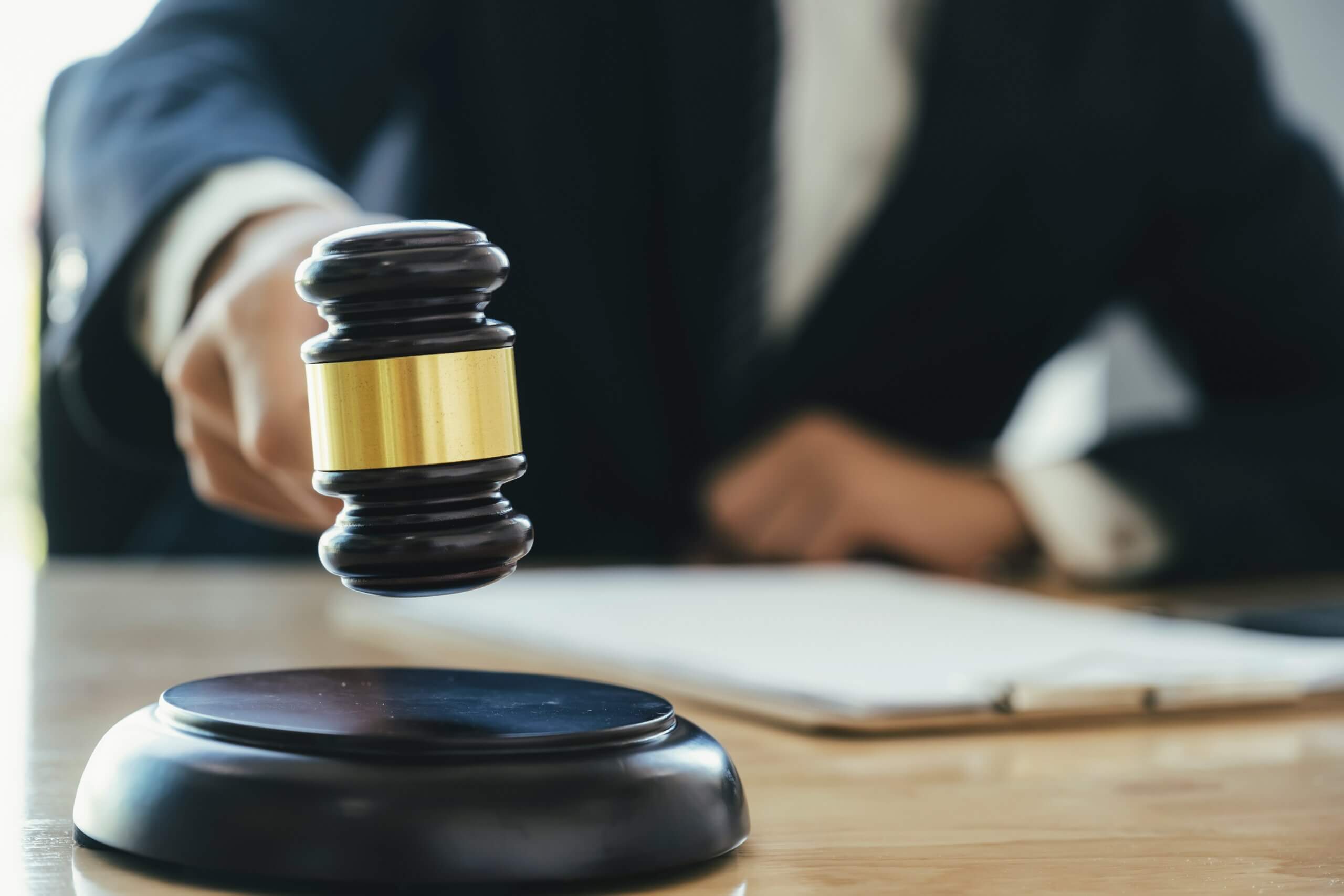Understanding Drug Offenses in Arkansas
Drug offenses in Arkansas carry serious consequences, even for first-time offenders. Whether you are charged with possession, distribution, or manufacturing, drug crimes can lead to jail time, steep fines, and a permanent criminal record. Arkansas law takes drug offenses seriously, and penalties can vary based on the type and quantity of the controlled substance involved.
If you are facing a drug charge, understanding the potential consequences and available defense options is crucial to protecting your future. This guide provides an overview of Arkansas drug laws, penalties, and strategies for legal defense.
Common Types of Drug Offenses in Arkansas
Arkansas law outlines a wide range of drug-related crimes. Here are the most common charges individuals face:
Possession of a Controlled Substance
Simply having illegal drugs in your possession – even small amounts – can lead to misdemeanor or felony charges, depending on the substance and quantity.
Possession with Intent to Deliver
If authorities believe you intended to sell or distribute drugs (often based on the amount you have or surrounding circumstances), you can face harsher felony charges.
Drug Manufacturing or Cultivation
Manufacturing illegal substances (such as methamphetamine) or cultivating marijuana plants without a license is a serious offense with severe penalties.
Drug Trafficking
Transporting or selling large quantities of controlled substances across state lines can result in trafficking charges, often accompanied by mandatory minimum prison sentences.
Drug Classifications in Arkansas
Arkansas follows a Schedule system, similar to federal law, categorizing drugs based on their potential for abuse and accepted medical use:
- Schedule I: High potential for abuse; no accepted medical use (e.g., heroin, LSD, ecstasy)
- Schedule II: High potential for abuse; some medical use (e.g., cocaine, methamphetamine, oxycodone)
- Schedule III: Moderate to low potential for dependence (e.g., anabolic steroids, ketamine)
- Schedule IV: Low potential for abuse (e.g., Xanax, Valium, marijuana)
- Schedule V: Lowest potential for abuse (e.g., cough preparations with less than 200 mg of codeine)
The classification of the drug involved greatly impacts the severity of the charges and penalties you could face.
Legal Penalties for Drug Offenses in Arkansas
Misdemeanor Drug Charges
For smaller amounts of marijuana or certain prescription drugs without a valid prescription, you might face a Class A misdemeanor, punishable by:
- Up to 1 year in jail
- Fines up to $2,500
Felony Drug Charges
More serious drug offenses are classified as felonies:
- Class D Felony: Up to 6 years in prison and fines up to $10,000
- Class C Felony: 3 to 10 years in prison and fines up to $10,000
- Class B Felony: 5 to 20 years in prison and fines up to $15,000
- Class A Felony: 6 to 30 years in prison and fines up to $15,000
Possession of certain amounts of methamphetamine, cocaine, heroin, or fentanyl can quickly escalate a charge to a Class A or B felony.
Aggravating Factors That Increase Penalties
Several factors can lead to enhanced penalties in Arkansas:
- Possession near a school, park, or daycare
- Repeat offenses (prior drug convictions)
- Possession of a firearm during the commission of a drug offense
- Trafficking across state lines
These factors can turn what might seem like a “small” offense into a case carrying decades-long sentences.
Defense Options for Drug Charges in Arkansas
The right legal defense can make a significant difference in the outcome of a drug case. Some common defense strategies include:
Challenging an Illegal Search and Seizure
If law enforcement violated your Fourth Amendment rights – such as searching without a warrant or probable cause – any evidence obtained may be thrown out.
Lack of Possession
You must have knowingly possessed the drugs. If they were found in a shared vehicle or home, the prosecutor must prove the drugs belonged to you.
Chain of Custody Issues
Evidence must be properly handled and documented. If there are gaps in the chain of custody, the evidence could be deemed unreliable.
Entrapment
If law enforcement induced you to commit a drug crime you otherwise would not have committed, you may have a valid entrapment defense.
Substance Misidentification
Not all substances are immediately identifiable. A laboratory error or improper testing could lead to wrongful charges.
Diversion Programs
For first-time, non-violent drug offenders, Arkansas offers drug court and diversion programs that, if successfully completed, can result in reduced charges or dismissal.
Why You Need an Experienced Arkansas Drug Defense Attorney
Drug laws are complex, and the stakes are high. A conviction can affect your employment, housing, education, and even your right to vote or possess a firearm. Trying to navigate these charges without an experienced attorney can lead to devastating consequences.
At The Digby Law Firm, we bring deep knowledge of Arkansas drug laws and proven defense strategies. We can evaluate your case, protect your rights, negotiate with prosecutors, and fight for the best possible outcome.
Protect Your Future – Contact The Digby Law Firm Today
If you are facing drug charges in Arkansas, don’t wait to get legal help. Located in Benton, Arkansas, The Digby Law Firm proudly serves clients statewide in all areas of criminal defense, including drug offenses, DWI/DUI, sex offenses, violent offenses, felonies, divorce, child custody, child support, adoption, and civil cases.
We offer free consultations for all Arkansas cases. Contact us today at (501) 44-DIGBY or via email at Bobby@BobbyDigbyLaw.com to schedule your consultation today. When your future is on the line, trust The Digby Law Firm to stand by your side.

The Legal Framework in Arkansas
In Arkansas, law enforcement officers have the authority to arrest individuals without a warrant under any circumstances. According to Arkansas Code § 16-81-106, an officer may arrest someone without a warrant if:
- A public offense is committed in the officer’s presence.
- The officer has reasonable grounds to believe that the person has committed a felony.
- The officer has probable cause to believe that the person has committed battery upon another person, finds evidence of bodily harm, and reasonably believes that there is a danger of violence unless the person is arrested without delay.
However, not all criminal charges require an immediate arrest. In many situations, law enforcement and prosecutors may decide to move forward with charges without placing the individual in handcuffs. This can happen through a summons, a post-investigation charge, or a grand jury indictment.
Charging Without Arrest: How Does It Happen?
There are several ways that an individual can face criminal charges without first being arrested. Below are some of the most common scenarios.
1. Issuance of a Summons
A summons is a legal document that requires a person to appear in court to respond to criminal charges. Unlike an arrest warrant, a summons does not result in immediate detention. Law enforcement may issue a summons instead of making an arrest if:
- The alleged crime is a misdemeanor rather than a felony.
The accused person is not a flight risk or considered dangerous.
The prosecutor or judge believes the person will comply with the court order.
A summons will typically specify the charges and the date and time the individual must appear in court. Failing to appear can result in an arrest warrant being issued.
2. Post-Investigation Charges
Many criminal cases begin with an investigation rather than an immediate arrest. This is especially common for white-collar crimes, drug offenses, fraud, and cases requiring forensic evidence. After reviewing evidence, conducting interviews, and gathering sufficient probable cause, the prosecutor may file formal charges.
Once charges are filed, the defendant will receive notice to appear in court for an arraignment. In some cases, a warrant for arrest may be issued, depending on the severity of the crime and the likelihood that the defendant will appear voluntarily.
3. Grand Jury Indictments
For serious criminal offenses, such as felonies, a prosecutor may present evidence to a grand jury instead of making an immediate arrest. If the grand jury determines there is sufficient evidence, they will issue an indictment, formally charging the individual.
Once indicted, the defendant will either:
- Be issued a summons to appear in court, or
- Have an arrest warrant issued, leading to detention.
Your Rights Upon Being Charged
Even if you are not arrested, facing criminal charges is a serious matter. Understanding your constitutional rights can help you protect yourself legally.
1. Right to Legal Representation
You have the right to consult with an attorney at any stage of the criminal process. If you cannot afford an attorney, the court will appoint a public defender to represent you.
2. Right to Be Informed of Charges
Law enforcement or the prosecutor’s office must inform you of the charges against you and provide details on the legal process, including upcoming court dates.
3. Right to Due Process
Even if you were not arrested, you are still entitled to:
- A fair trial before a judge or jury.
- The opportunity to present a defense.
- The presumption of innocence until proven guilty.
Steps to Take If You’re Charged Without Arrest
Being charged without arrest does not mean the charges are less serious. It is critical to take the proper legal steps to protect your rights and avoid severe consequences.
1. Consult an Attorney Immediately
If you receive notice of charges or a court summons, the first step is to contact an experienced criminal defense attorney. A lawyer can:
- Review the evidence against you.
- Advise you on possible defenses.
- Negotiate with prosecutors to reduce or dismiss charges.
2. Do Not Ignore the Summons
Failing to appear in court as ordered can lead to a warrant for your arrest. This could escalate the situation, resulting in additional charges for failure to appear.
3. Gather Evidence and Witnesses
If you have been wrongfully accused or believe there is a misunderstanding, begin gathering evidence to support your case. This could include:
- Text messages, emails, or phone records.
- Witness statements.
- Financial records or security footage that prove your whereabouts.
4. Avoid Self-Incrimination
Refrain from discussing your case with anyone other than your attorney. This includes:
- Friends and family (as they could be called as witnesses).
- Social media posts, which can be used against you in court.
- Law enforcement officers, as anything you say can be used as evidence.
What Happens If You Ignore Charges?
Ignoring criminal charges, even if you were not arrested, can lead to severe consequences, including:
- A warrant for your arrest.
- Additional criminal charges for failure to appear.
- A conviction in absentia (meaning that you are found guilty without being present in court).
- Heavier penalties, including jail time and fines.
If you have received a summons or a notice of charges, taking immediate legal action is crucial to protect your freedom and reputation.
Contact The Digby Law Firm Today
Understanding that you can be charged without being arrested is vital for protecting your rights and preparing an adequate defense. Whether you receive a summons, a grand jury indictment, or post-investigation charges, it is crucial to seek legal representation immediately.
At The Digby Law Firm, located in Benton, Arkansas, we specialize in defending individuals facing criminal charges, including violent offenses, felonies, drug offenses, sex offenses, and more. We provide free consultations for all Arkansas cases and will help you navigate the legal process.
Contact us today at (501) 44-DIGBY or email Bobby@BobbyDigbyLaw.com for expert legal guidance.
Need AdvICE?
Our lawyers are experts in Arkansas civil and criminal law, and they’re here to help. If you would like to discuss the particulars of your case with a lawyer, contact the Digby Law Firm.
Protecting Your Rights After a False Accusation During the Holidays
When a Holiday Dispute Turns Into a Criminal Accusation
The holiday season brings people together, but it also creates stress, heightened emotions, and situations where misunderstandings can escalate quickly. Family gatherings, workplace parties, and crowded public spaces can all become flashpoints for conflict. Unfortunately, these moments sometimes lead to false accusations that result in criminal charges.
Being wrongfully accused of a crime during the holidays can feel overwhelming. You may be blindsided by police involvement, embarrassed in front of loved ones, or unsure how to protect yourself. At The Digby Law Firm, we regularly help clients across Central Arkansas, including Benton, Bryant, and Little Rock, navigate false accusation defense cases and safeguard their rights during one of the most difficult times of year.
Charged With Theft? What You Need to Know
Being charged with theft in Arkansas can be stressful, confusing, and overwhelming. Many people are surprised to learn how quickly a simple accusation can turn into a serious criminal matter. Under Arkansas theft laws, prosecutors do not need a dramatic scenario to file charges. Even everyday situations involving misunderstandings, disputes, or poor judgment can result in theft charges that carry long-term consequences.
If you are facing theft charges in Arkansas, understanding how the law works and what you are up against is critical. Early action and informed decisions can make a significant difference in the outcome of your case. At The Digby Law Firm, we help clients across Central Arkansas, including Benton, Bryant, and Little Rock, protect their rights and fight back against theft accusations.
Can the Police Access Your Phone During an Investigation?
With smartphones holding a wealth of personal information, many Arkansans wonder what law enforcement can legally access during an investigation. Texts, call logs, photos, emails, app data, and even location history can all be scrutinized, which makes understanding...



